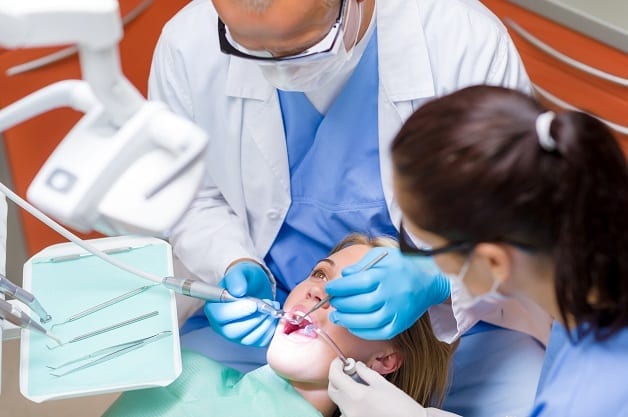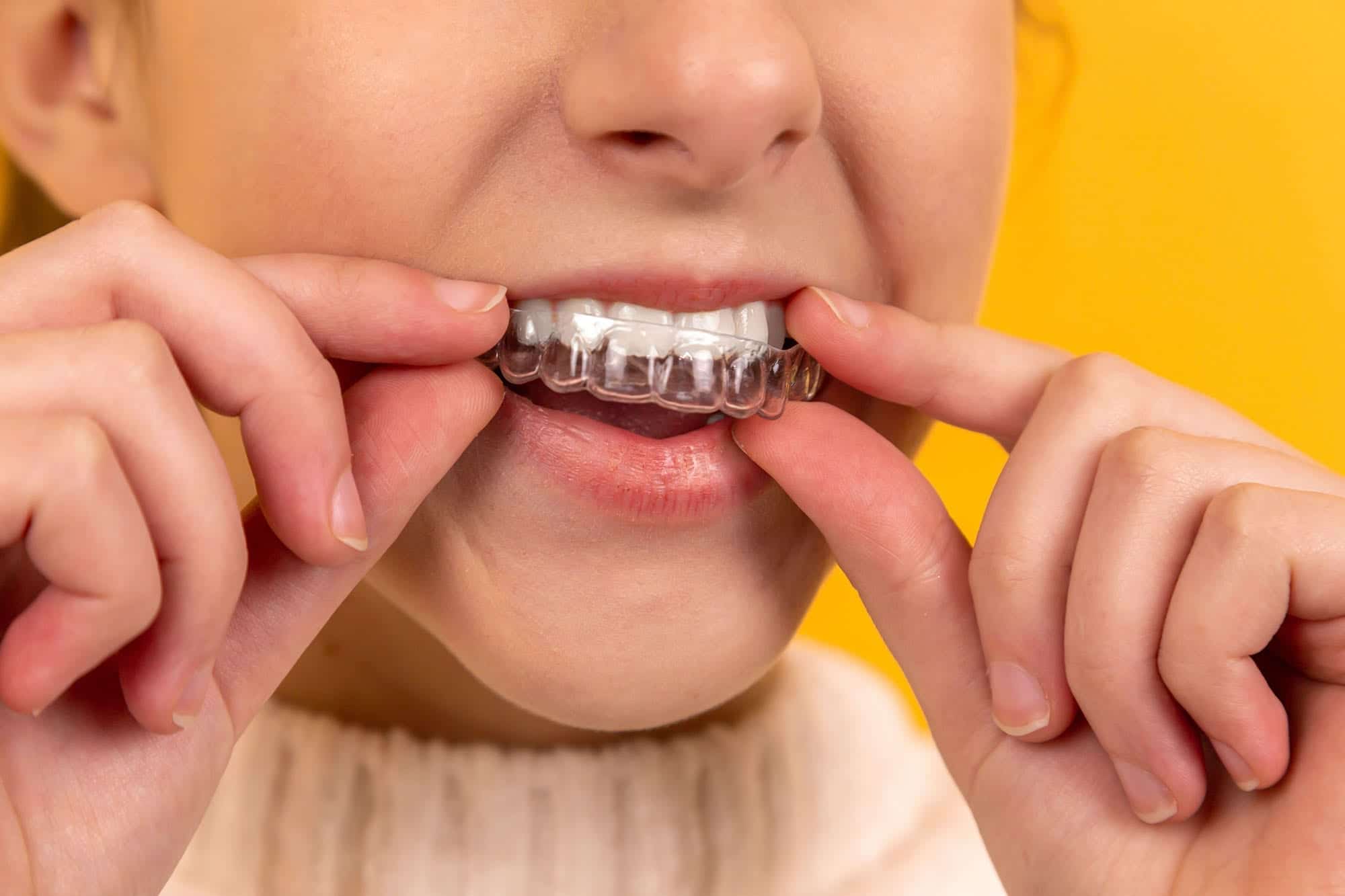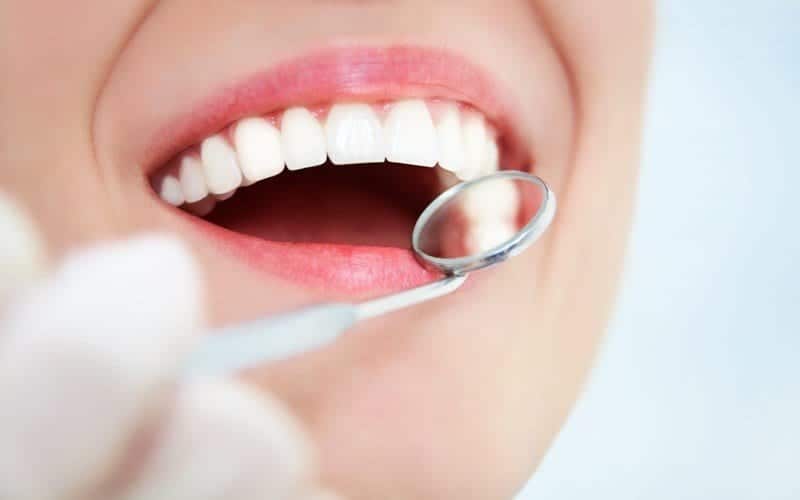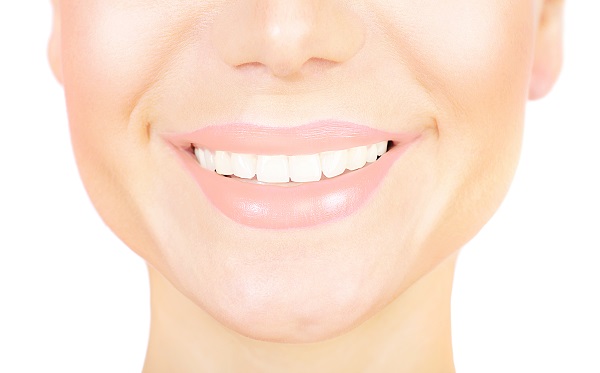Do you have chipped or broken teeth? Are you embarrassed by them and wish to literally get back your smile one tooth at a time? Or do your teeth sometimes make your jaw ache because the exposed dentin makes it likelier to suffer from infection?
Dental bonding can save you from toothache and pain or being forced to hide your teeth and smile because of their appearance!
Page Contents
What is Dental Bonding?
Dental bonding can fix chipped or slightly broken teeth by cementing them with dental material resembling resin. It’s mostly cosmetic and if you wish to fix more compromised teeth, it might be better to invest in crowns, dentures, bridges, root canal procedures, or implant dentistry.
The material used to bond your teeth looks like natural tooth enamel. They’re also chosen to match the shine or original color of your remaining teeth and smile. This procedure can transform your smile completely when push comes to shove.
Like with filling material, the resin is exposed to ultraviolet rays in order to make it harden and bond. It assists in covering or filling in dental imperfections like chipped teeth or major breaks much bigger than dental caries or cavities.
Why Use Dental Bonding?
Dental bonding is best used as an effective, non-invasive cosmetic dental treatment for minor damage and imperfections on your teeth.
If you want a more major cosmetic treatment of your front teeth, you can instead use veneers. It covers your front teeth with wafer-thin material. In contrast, dental bonding cements your teeth with tooth-colored composite resin.
This resin is then polished and shaped to match the surrounding teeth, making it blend with the rest of the enamel. This gives you a more natural smile, versus veneers that help whiten discolored teeth.
Dental bonding uses resin that literally sticks and bonds to the rest of your teeth.
How Long Does Dental Bonding Last?

The composite resin that was applied to your teeth through the bonding process will most likely last anywhere from 4 to 8 years. If you take good care of it, it can potentially last up to 10 years. After 10 years, you’ll need to replace the bond or get a stronger repair process like a crown.
In regards to the procedure’s lifespan, its longevity is affected by different factors, including bonding material type.
- Bonding Material: The quality of the dental bonding material can also affect how tough it is and how much normal mouth activity it can take.
- Dental Habits: Your dental habits can affect how long the bond lasts. If you grind your tooth, it could destroy the dental bonding material.
- Biting Hard Substances: Excessive pressure can crack the dental bonding cement you bite down on a hard substance or chew endlessly on chewing gum.
- Touchup: Your dentist can touch up the resin and rebond the worn-down bond over time if needed. Otherwise, you might need to upgrade to a crown or root canal.
- Avoid Sugary or Acidic Foods: If you drink soda, alcohol, or other acidic beverages and foods, they can wear down not only your natural teeth’s enamel but also your dental bond.
- Dental Care: Adequate care like dental hygiene is required to ensure the longevity of your dental bonding material. You might need to replace the bonding material to get whiter replacements.
- Smoking and Drinking: The duration of your dental bonding can get reduced by smoking. Drinking beverages such as red wine, tea, and coffee can stain the dental bonding material, discoloring it.
- Placement: Dental bonding lasts longer on your front teeth like your incisors and canines compared to your back teeth like your premolars and molars because the latter uses more bite force or pressure.
- Natural Teeth vs. Bonded Teeth: Natural teeth are much stronger than bonded teeth. If you want to bond molar or premolar teeth that are as strong as natural teeth, use porcelain crowns or bridges.
- Be Careful What You Bite Down On: Don’t bite down on things like ice or hard candy. Biting or grinding your teeth on hard substances can chip down the bonding material long with your enamel.
- Also Floss and Brush After Eating Fruit: After eating fruit, as healthy as it is, don’t forget to floss and brush your teeth afterward to prevent plaque or bacteria from growing and compromising your teeth’s health.
- How to Maintain Bonding Material: Attend regularly scheduled dental visits, buy prophylaxis dental cleaning, and have excellent oral hygiene by brushing and flossing twice a day then using mouthwash every other day.
How Long is the Dental Bonding Procedure?
It takes half an hour to an hour to complete the dental bonding procedure. Veneers are customized to fit your natural teeth underneath, so they’re synthesized in a dental laboratory. As such, veneers require more time to make.
The bonding process of veneers requires you to usually undergo multiple dental visits. In contrast, you can do dental bonding in one or two visits depending on how many teeth require bonding.
What’s Involved in Dental Bonding?
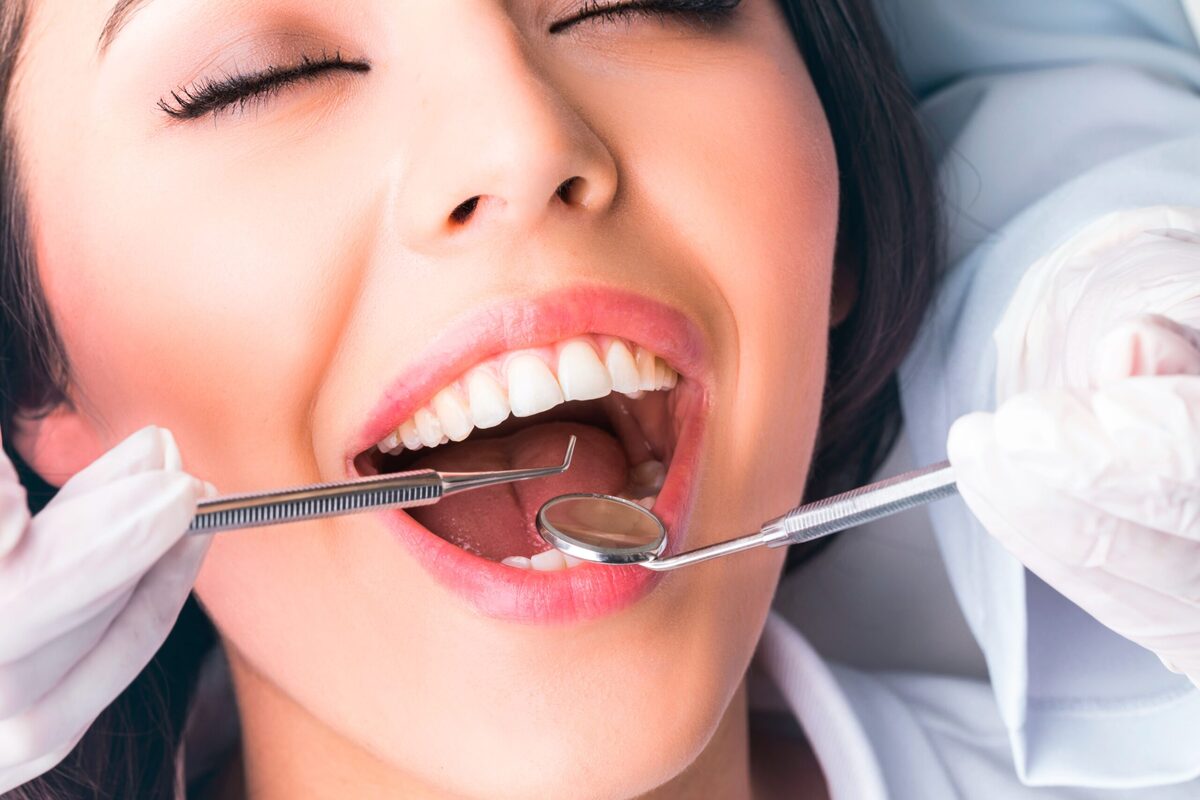
The dental bonding procedure is an in-and-out outpatient procedure. You won’t have to stay in the clinic and if you only have a few teeth fixed, it should only last one visit instead of multiple ones.
The first stage involves choosing a composite resin color that’s close to the shade of the rest of your teeth. A chart is used to determine this. Your teeth surface is then prepped before the resin is applied to the crack and hardened with a UV light.
This procedure usually doesn’t require anesthesia unless you need to dramatically change the shape of the tooth in question (i.e., requires extensive drilling). You might also need anesthesia if you require a filling.
If the chip on your tooth is near a nerve, the work could bump it and cause you significant pain, thus requiring anesthesia as well.
What Could Affect the Dental Bonding Cost?
Many patients are concerned about the cost of dental bonding. You can reduce cost by checking if your dental insurance has coverage for this. However, because it’s a cosmetic procedure, most insurance companies don’t offer coverage for it.
- Your Teeth is Easier to Chip Than You Think: They don’t require blunt-force trauma on the face or an unfortunate accident during dodgeball. You can crack your tooth by biting ice cubes or hitting it with a glass bottle.
- What Is Dental Bonding Used Mostly For? Dental bonding is mostly reserved for repairing chipped teeth and broken teeth that aren’t too deeply broken. If the damage is too severe, veneers and crowns might instead be called for.
- Long-Lasting Cosmetic Method: If you can afford it, it’s a relatively long-lasting cosmetic method of fixing your broken teeth that’s effective and dependable. Its cost depends on various factors.
- Insurance Coverage: Your insurance premium, if it’s high enough or complete enough could possibly cover cosmetic dental procedures. It’s unlikely for regular affordable middle-class premiums though.
- Scope of Work: The more area requires bonding the more expensive it should get. The placement of the tooth or teeth as well as the difficulty of application can also affect the price.
- Cosmetic or Structural: A more cosmetic procedure is cheaper than structural reconstruction. Also, if the damage of your teeth is too deep for this treatment, you’ll be advised to get a bridge, crown, or denture instead.
- Constant Retouching: Take care of your teeth after bonding. The cost for the bonding might go up if you need to get it retouched soon after. Contact your dentist for more info.
- Your Local Area: Your expenses may depend on which city your dentist resides. In certain states or cities, the dental practice might give you a more affordable or expensive price.
- Getting Work Done Abroad: You can also get cheaper dental care abroad that’s cheaper than local dental treatment even when you take travel expenses into account.
- Dental Tourism in Thailand: You can also avail of dental tourism from Thantakit Dental Center in order to fix your teeth abroad, in Thailand. You can also get warranty for the procedure in case it breaks before a five-year period.
How Much Does Dental Bonding Cost?
The dental bonding procedure on average costs about $200 to $500 per tooth or more depending on how complex the procedure is. The retouches can cost a fraction of the full bonding or a new bonding procedure depending on the dentist and the state of the old bond.
If you go to Thailand and get it down at Thantakit, you can avail of it for ฿4,000 to ฿5,000 ($110 to $140) or roughly the same cost as a lower-end bonding procedure but with higher-end quality you’d expect from a $400 to $500 bonding.
You can get discounts if you require multiple dental bonding procedures or do it with dental cleaning or filling included. This on top of getting a wellness vacation in beautiful Thailand—the Land of Smiles!
What Are the Advantages of Dental Bonding?

Teeth are naturally strong and can assist you in ripping, chewing, and smiling for most of your life, especially if your adult teeth have already erupted from under your gums.
They’re durable because the outer enamel shell of the teeth is one of the strongest materials of your body, like an extended part of your bones used for eating.
You can improve your oral health by indulging in dental bonding. Your favorite dentist or dental clinic should get the job done since it’s one of the simpler procedures along with putting in dental filling on a tooth with dental caries.
- Uses of Dental Bonding: This cosmetic dental procedure repairs chipped, cracked, or broken teeth as well as whitens discolored teeth like veneers could. It also fills in tooth gaps when your teeth are crowding. You can even use it to lengthen short teeth.
- Pain-Free and Extremely Convenient: Depending on the treatment, the severity of the dental damage, and the expertise of the dentist, dental bonding should be some degree of painless and convenient. It’s mostly pain-free though.
- The Nature of the Bonding Material: The bonding material for dental bonding is safe and biocompatible. This means it should be perfectly compatible with natural teeth without “poisoning” the tooth or causing a gum infection.
- How Safe is Dental Bonding? Dental bonding is about as safe as putting in teeth filling composite. It shouldn’t cause harm to your body. It should shield your broken tooth from getting infected by bacteria.
- Cosmetic or Aesthetic Value: Newly bonded and polished teeth should enhance the overall appearance of your smile. If you want to beautify your smile by fixing slight imperfections or chipped away enamel, go for dental bonding.
- Composite Resin: Make your teeth look good as new using composite resin that’s colored like natural teeth. It covers the parts where your tooth broke off or is missing enamel. It also safeguards the dentin and pulp inside.
- Blends Well with the Rest of Your Teeth: Unlike porcelain crowns that cover severely broken teeth or fillings, the color of the composite resin bond will be similar to the color of the tooth. This makes the repair look seamless and natural.
- Cement Hardened by UV Rays: To bond your broken teeth, your dentist adds composite resin on the prepped tooth surface then molds it to repair the damage. Everything is then hardened like cement using a UV light.
- Affordable Method of Fixing Teeth: You can fix your front and back teeth with this cost-effective option. If the damage is more severe, you can avail of more effective methods of dental restoration like inserting veneers or crowns.
- Improve Your Oral Health: A broken tooth with the dentin exposed is more likely to suffer from nerve pain and infection. Before you allow the damage to really worsen, improve your oral health considerably with dental bonding.
- Additional Care Might Be Called For: If your teeth got cracked due to bruxism, tooth decay, or digestive acids in the mouth, you need to address the cause of the crack on top of fixing it with dental bonding (i.e., nightly mouth guard for bruxism).
- Protects Natural Teeth: Your natural teeth should remain intact and barely any part of it should be removed save for some enamel being roughed up for the sake of the bonding agent sticking better on the surface. The whole thing is also polished for good measure.
Who Benefits the Most from Dental Bonding?
People who suffered only minor injuries with teeth that aren’t severely decayed can avail of dental bonding instead of more expensive restoration techniques like veneers, crowns, bridges, and dentures.
A severely decayed tooth isn’t suitable for dental bonding or filling because there’s not enough natural tooth left to serve as support for the dental “cement”. You need a new support system to anchor a restoration there.
A dental implant is the better option for those who’ve lost a tooth or most of a tooth. The implant is a metal stud inserted to the tooth socket where your teeth used to be to serve as an anchor to a full porcelain crown, bridge, or denture.
Conclusion
The affordable dentists of Thantakit International Dental Center have dental bonding services available on top of many others at the fraction of the price of your local dentist. Even taking into account travel expenses, it’s still much cheaper to go to Thantakit.
In turn, dental bonding is a cosmetic procedure that also improves dental functionality by bonding or gluing together broken enamel or pieces of teeth with a cement-like composite substance.
What are you waiting for? Get teeth bonding done from the best dentists at Thantakit today! Their services come with discounts and warranties for good measure!
Thantakit International Dental Center is Thailand’s longest established dental center. Situated in Bangkok, our clinic is renowned across the world as a destination for world-class dentistry, with most of our patients flying to us from Australia.
Please contact us today and get a FREE dental consultation.



